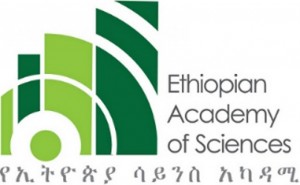
The Ethiopian education sector is planning to turn to the newly emerging economic powers – China, India, South Korea and Brazil – to remodel and reorganize its Applied Science, Engineering and Technological (ASET) departments to fit the growing need of its budding manufacturing development.
Deputy Prime Minister and outgoing Minister of Education, Demeke Mekonnen, while opening a workshop on ASET skill development organized jointly with the World Bank, said that currently Ethiopia is at a critical stage of economic development, where it has to reevaluate its tertiary and Technical and Vocational Education and Training (TVET), to gauge whether it has the capacity for further growth. “How can a large investment in education accelerate the economic development?” he asked.
The workshop was the first of its kind on the continent, where African countries –Ethiopia, Guinea, Liberia, Mozambique, Nigeria, Rwanda, Senegal, Sudan and Tanzania – got the chance to deliberate on the shortage of skilled manpower which haunts their infant manufacturing sectors. The four economic powers, dubbed the partners, were present to shed light on the severity of the shortage of skilled human resources, speaking as major players in the manufacturing sector of the region. Being the biggest FDI investors on manufacturing activities in sub-Saharan Africa, the partners met the education sector leaders of each of countries they invest in and informed them of their predicament in recruiting skilled labor.
Huajian Shoes Factory, one of the major FDI investment companies in Ethiopia, faced a similar problem while setting up its company in Ethiopia. In fact, the company had to train some of its labor force in China to fit its standards. Three years ago, the Ethiopian government took notice of the human resource problem and devised a comprehensive strategy, where 70 percent of the overall educational training program was to be focused on applied science and technology. Furthermore, the ministry of education also tried to forge a strategic alliance with Germany to restructure the engineering and technology facility at the Addis Ababa University. However, the issue of meeting the demand of the manufacturing sector in terms of a skilled labor force remains a problem.
Nevertheless, it looks like the technology and TVET sectors in Ethiopia might be soon looking to the partner countries for inspiration. Commentators hold different views regarding the decision of the African states to look into Asian and Latin American economies for inspiration.
The three-day workshop, the new south-south partnership on the areas of applied science, engineering and technology, was conceived in Addis Ababa. The World Bank is tasked with making the workshop a periodical event – every six months or one year – and to take care of any facilitation issues.
Source: thereporterethiopia.com









![[Blog + Video] Ethiopia and Africa On Rise – FM Tedros Adhanom](https://www.ethiopianopinion.com/wp-content/uploads/2013/09/drtedros-150x150.jpg)


















Join Conversations